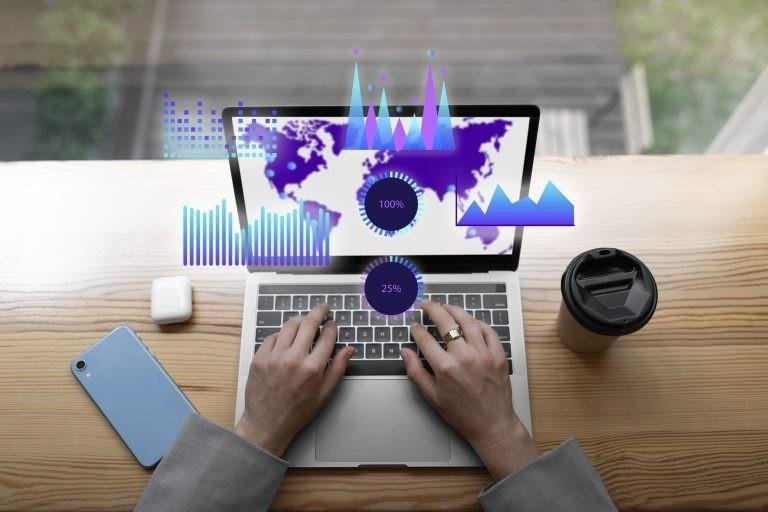In the ever-evolving landscape of business, knowledge is power. Market research, once confined to traditional methodologies, has undergone a seismic transformation with the integration of technology. The digital age has ushered in an era where data is abundant, instantaneous, and dynamic, reshaping the way businesses understand their markets and make informed decisions.
So, below we’ll explore the profound impact of technology on market research, dissecting the shifts that have occurred and anticipating the exciting future that lies ahead.
Evolution of Data Collection
The cornerstone of market research has always been data collection. Traditionally, this involved labor-intensive methods such as surveys, interviews, and focus groups. However, technology has ushered in an era of unprecedented efficiency.
Online surveys, social media listening, and data analytics tools have streamlined the data collection process, enabling researchers to gather vast amounts of information in real-time. This shift not only accelerates the pace of research but also enhances the accuracy and breadth of insights. You can also check out this link https://creativesoncall.com/technology-in-market-research if you’re eager to know more!
Harnessing Big Data for Deeper Insights
Big Data, characterized by its sheer volume, velocity, and variety, has emerged as a game-changer in market research. Technology enables businesses to sift through colossal datasets to identify patterns, trends, and correlations that were once elusive.
Machine learning algorithms and artificial intelligence (AI) are deployed to analyze and interpret data, providing deeper insights into consumer behavior, market trends, and competitive landscapes. This wealth of information allows businesses to make data-driven decisions with unprecedented precision.
Real-Time Feedback and Monitoring
Gone are the days of waiting weeks for survey results or quarterly reports. Technology has enabled real-time feedback and monitoring, providing businesses with instantaneous insights into market dynamics. Social media platforms, customer reviews, and online forums serve as invaluable sources of real-time data.
Businesses can monitor brand sentiment, track emerging trends, and respond promptly to consumer feedback. This agility is a paradigm shift, allowing companies to adapt swiftly to market fluctuations and consumer preferences. Discover more interesting info here.
Digital Ethnography and Online Communities
The digital era has given rise to new methods of understanding consumer behavior. Digital ethnography involves observing and studying consumers in their natural online habitats.
Researchers can analyze online forums, social media interactions, and digital communities to gain qualitative insights into consumer lifestyles, preferences, and opinions. This immersive approach offers a nuanced understanding of consumer experiences, complementing traditional research methodologies.
Enhanced Accessibility through Mobile Research
Mobile technology has democratized access to information, and market research is no exception. Mobile surveys, apps, and geolocation data enable researchers to reach a broader and more diverse audience.
Respondents can participate in surveys or provide feedback on the go, eliminating geographical constraints. This accessibility ensures that market research reflects the diversity of consumer perspectives, enhancing the robustness and relevance of insights.
Augmented and Virtual Reality in Consumer Testing
Technology has brought the physical world into the digital realm through augmented and virtual reality (AR and VR). In market research, these technologies are employed in consumer testing scenarios. For example, AR allows consumers to virtually try on products, visualize spaces, or experience products in their daily lives. VR creates immersive environments for detailed product testing or simulations.
These technologies provide a more engaging and realistic testing ground for consumer reactions, elevating the quality of insights.
The Rise of Predictive Analytics
Predictive analytics leverages historical data, statistical algorithms, and machine learning to identify the likelihood of future outcomes. In market research, predictive analytics aids in forecasting trends, consumer behavior, and market demand.
Businesses can anticipate shifts in the market, optimize pricing strategies, and proactively address emerging challenges. This proactive approach to decision-making is a testament to the transformative power of technology in market research.
AI-Powered Sentiment Analysis
Understanding consumer sentiment is critical for businesses seeking to gauge brand perception and market positioning. AI-powered sentiment analysis tools sift through vast amounts of textual data—from social media posts to customer reviews—to decipher the emotional tone and context.
This automated analysis provides businesses with a nuanced understanding of how their brand is perceived in the market, helping them tailor strategies for brand enhancement and reputation management.
Challenges and Ethical Considerations
While the impact of technology on market research is undeniably transformative, it comes with its own set of challenges and ethical considerations.
Privacy concerns, data security, and the potential for algorithmic biases are pressing issues that require careful navigation. Striking a balance between leveraging the power of technology and safeguarding consumer rights is essential for the ethical practice of market research in the digital age.
Integrating Emerging Technologies
As we peer into the future of market research, emerging technologies promise even greater advancements. Blockchain technology, known for its security and transparency features, could revolutionize data integrity and participant anonymity in research.
Internet of Things (IoT) devices may provide real-time, granular data on consumer behaviors. Quantum computing holds the potential to process complex datasets at unprecedented speeds, opening new frontiers in data analysis.




